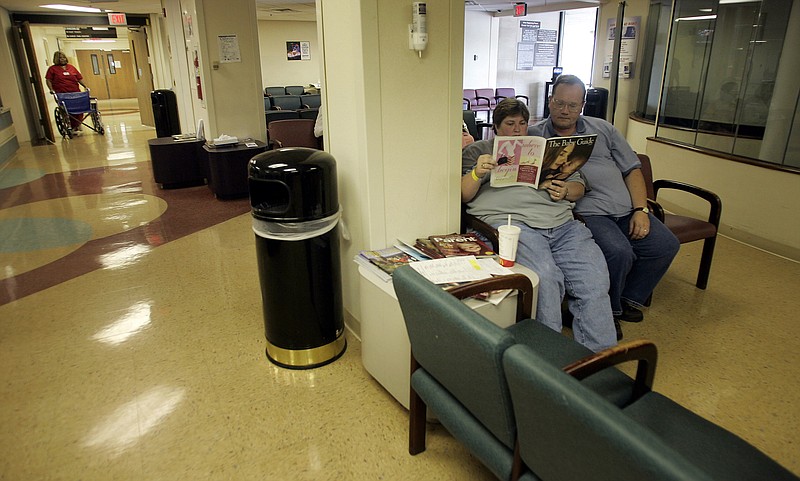More than 83,000 Tennesseans have been added to the TennCare rolls since March in one sign of a slide into poverty experienced by many individuals, especially children, as a result of the economic fallout of the coronavirus pandemic.
Children's enrollment increased the fastest, with upwards of 34,000 added to the state's health insurance program for low-income pregnant women, children and their parents and individuals who are elderly or have a disability, according to data published by TennCare.
Middle Tennessee saw the fastest rise in enrollment compared to other parts of the state and far more women than men were newly enrolled. TennCare, unlike programs in states that have expanded Medicaid, does not automatically enroll individuals because of their income levels. They must be poor and also meet other criteria such as having children or living with a disability.
TennCare Director Stephen Smith said during a budget review with Gov. Bill Lee this past week that those numbers are likely to increase since people often wait until they are experiencing a health problem to apply. Smith also noted that under emergency federal rules states are unable to remove individuals from the program, even if they no longer qualify.
Tennessee's TennCare growth - with about 6% more now enrolled in a program with 1.4 million individuals total - is in line with other states, Smith said. One July analysis by the Kaiser Family Foundation found there was a similar 6% increase across the nation's Medicaid programs by July. The report cited job losses and the resulting loss of employer-sponsored insurance as key reasons.
Health care advocates have long pressed state leaders to expand Medicaid to include, at minimum, low-income Tennesseans without children and who are not disabled - a move that lacks support from Lee and the Republican-dominated state Legislature.
Instead, Lee may be closing in on approval from the administration of President Donald Trump for a so-called block grant that would replace the current funding stream based on the number of people enrolled, setting a more fixed annual lump sum from the government that advocates fear could result in budget cuts to needed services.
"During this health and economic crisis, children, parents and older Tennesseans desperately need TennCare as a safety net," said Michele Johnson, executive director of the Tennessee Justice Center.
"We know comprehensive health coverage improves the quality of life, lengthens lives, protects savings and keeps families together. What is heartbreaking is that for four years there has been constant attacks on this crucial program by the Trump and Lee administrations, putting Tennesseans at great risk. Recent news about block granting TennCare demonstrates that these attacks, which put politics over people, continue."
The federal government increased its funding to help states cover costs, infusing TennCare with a projected extra $553 million to pay for the medical costs of newly enrolled adults and children through the end of this year. The agency's annual budget is more than $12 billion.
The pandemic has consumed much of the state agency's work over the past eight months. The program has paid for more than 150,000 COVID-19 tests, steered extra funding to hospitals and health care providers who serve a high proportion of TennCare patients, established nursing units outside hospitals for patients who are recovering from illness and reworked a host of regulations to allow for telehealth visits and other pandemic-related measures.
COVID-related enrollment is expected to continue to cost the state $173 million in the next fiscal year, beginning in July, with $115 million of the costs picked up by the federal government.
Read more from Tennessee Lookout.
